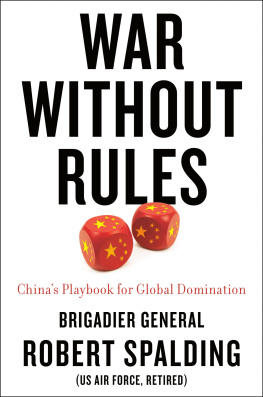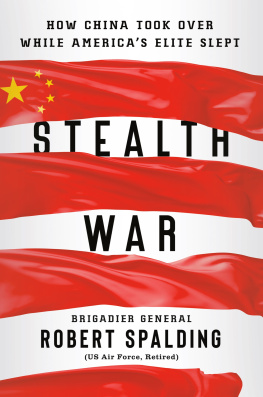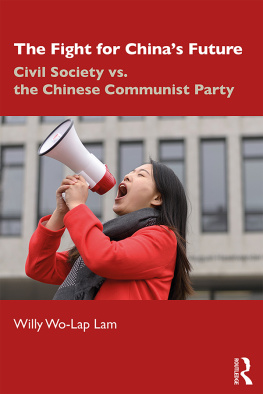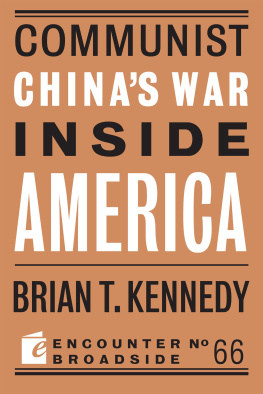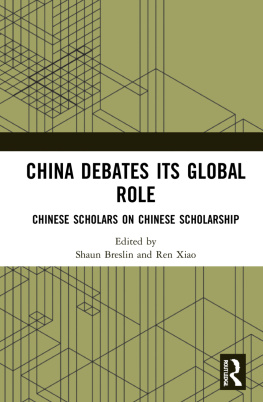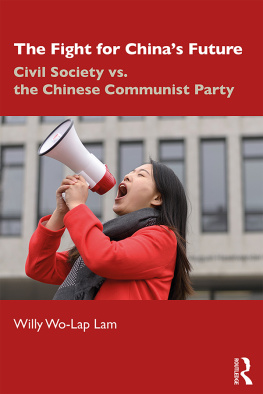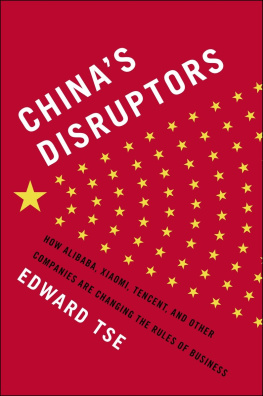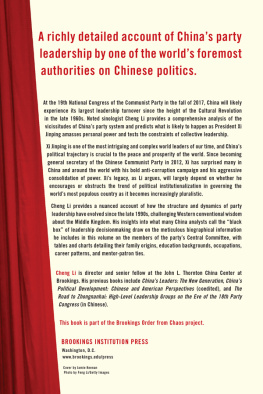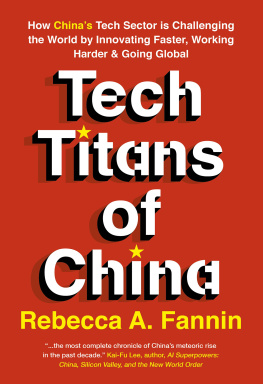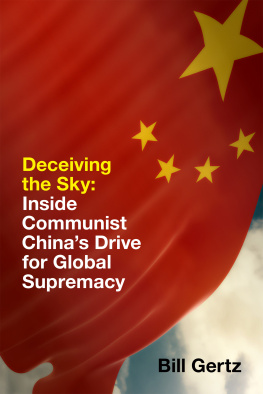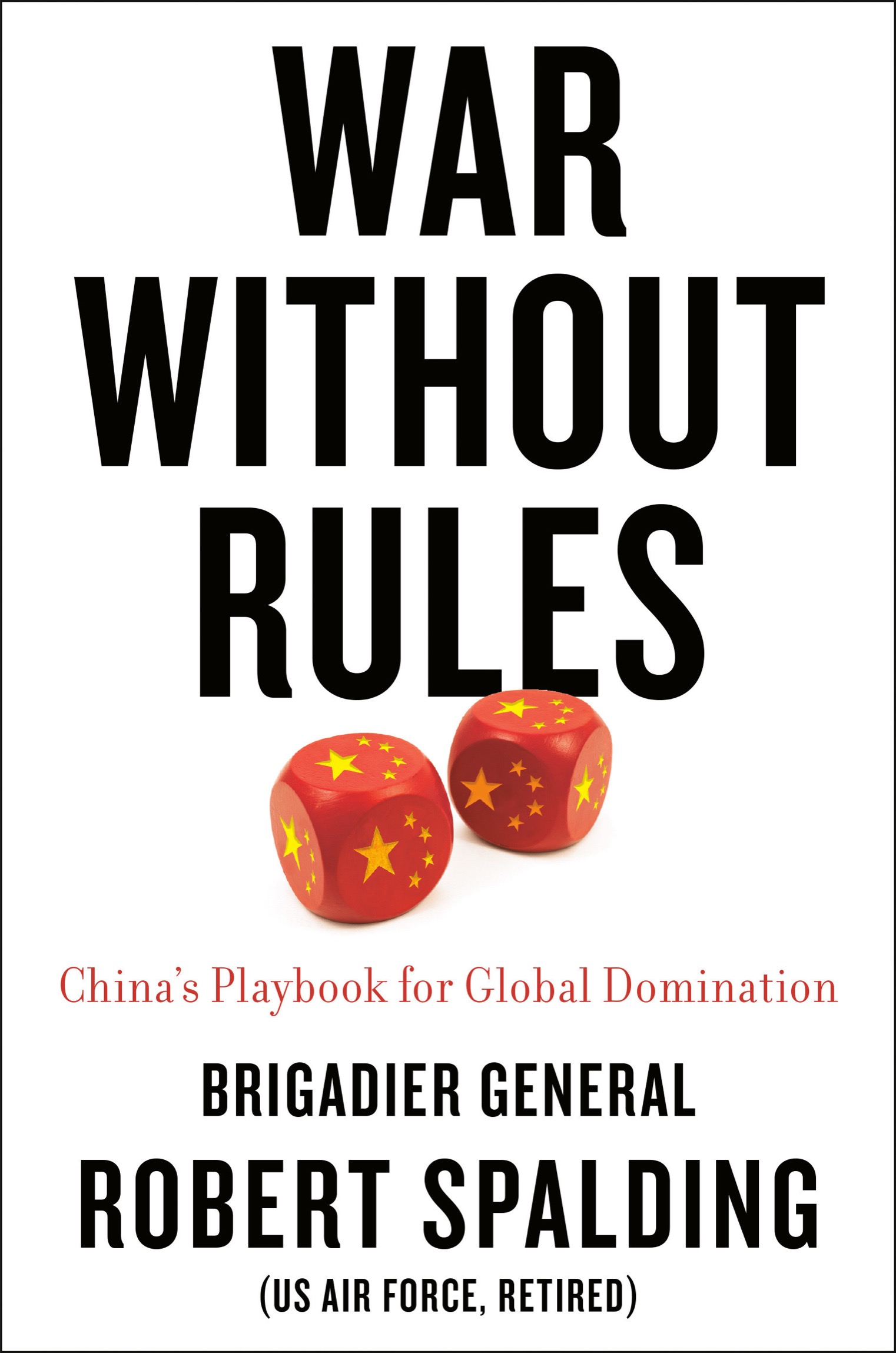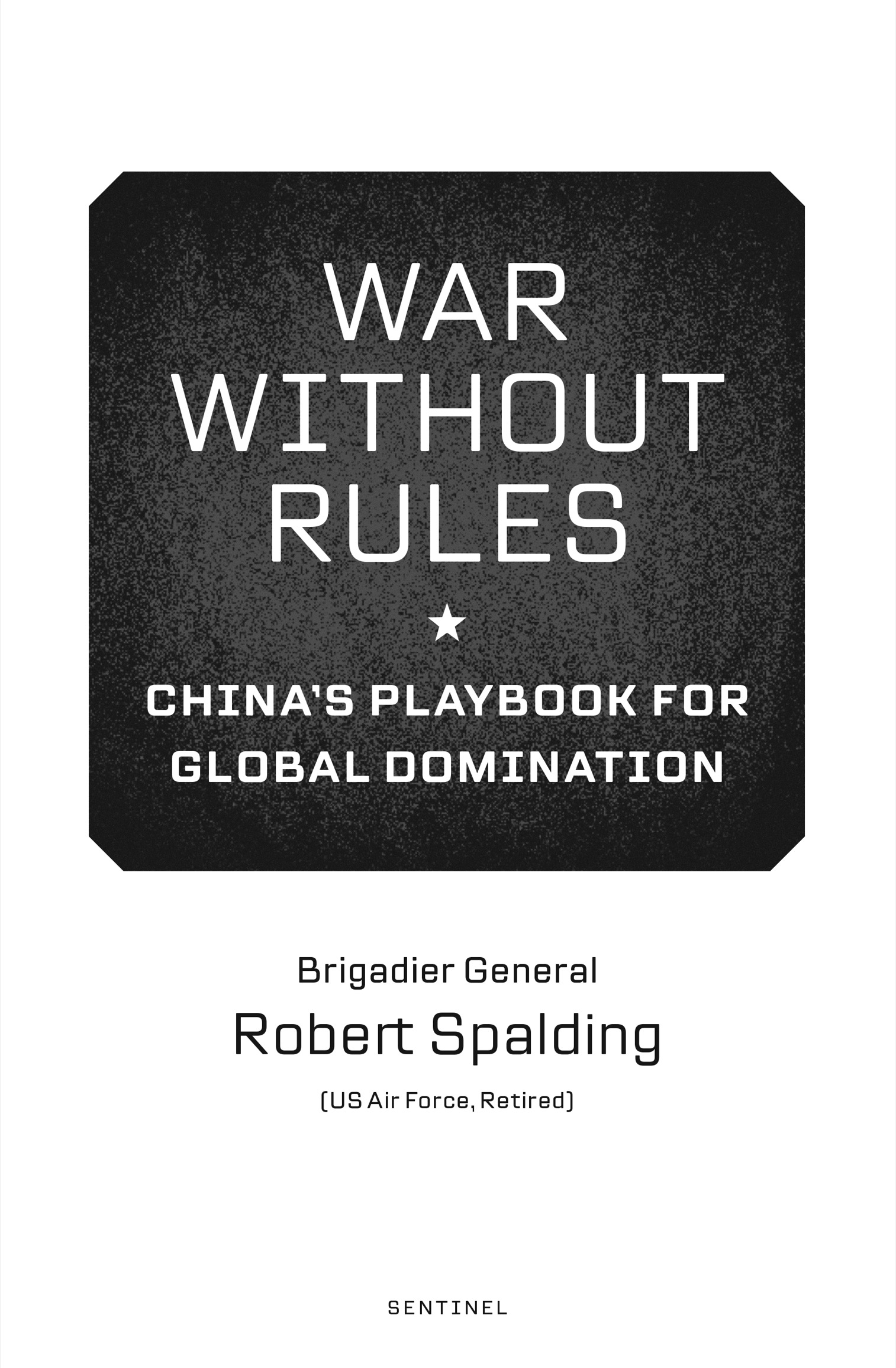
Sentinel
An imprint of Penguin Random House LLC
penguinrandomhouse.com
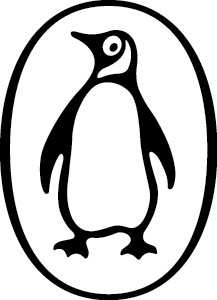
Copyright 2022 by Robert S. Spalding III
Penguin supports copyright. Copyright fuels creativity, encourages diverse voices, promotes free speech, and creates a vibrant culture. Thank you for buying an authorized edition of this book and for complying with copyright laws by not reproducing, scanning, or distributing any part of it in any form without permission. You are supporting writers and allowing Penguin to continue to publish books for every reader.
Sentinel and colophon are registered trademarks of Penguin Random House LLC.
Library of Congress Cataloging-in-Publication Data
Names: Spalding, Robert S., III, 1966 author.
Title: War without rules : Chinas playbook for global domination / Robert Spalding.
Other titles: Chinas playbook for global domination
Description: New York : Sentinel, [2022]
Identifiers: LCCN 2021058186 (print) | LCCN 2021058187 (ebook) | ISBN 9780593331040 (hardcover) | ISBN 9780593331057 (ebook)
Subjects: LCSH: ChinaMilitary policyHistory21st century. | United StatesForeign relationsChina. | ChinaForeign relationsUnited States. | Hybrid warfareChina.
Classification: LCC UA835 .S65 2022 (print) | LCC UA835 (ebook) | DDC 355/.033251dc23/eng/20220112
LC record available at https://lccn.loc.gov/2021058186
LC ebook record available at https://lccn.loc.gov/2021058187
Cover design: Sarah Brody
Cover image: (dice) Dem10 / Getty Images
Book design by Daniel Lagin
pid_prh_6.0_139725640_c0_r0
For Steph
If history teaches anything, it teaches that simple-minded appeasement or wishful thinking about our adversaries is folly.
It means the betrayal of our past, the squandering of our freedom.
We know only too well that war comes not when the forces of freedom are strong, but when they are weak. It is then that tyrants are tempted.
Ronald Reagan
All warfare is based on deception.
Sun Tzu
CONTENTS
INTRODUCTION
When I first read the Chinese war manual Unrestricted Warfare in 1999, I thought it was wacky. I was flying B-2 stealth bombers out of Whiteman Air Force Base in western Missouri and reading a lot about war. As an Air Force officer, I thought it was part of my day job to understand the bigger pictureeven though the prevailing attitude in the military was Just fly the planes. UW was one of those books that caused a stir among some military folks because it had recently been translated into English. It had that insider whiff of mystery and secrets, a peek into the mind of the Chinese Communist Party.
Despite that mystique, not a lot of people were finishing the book. For one thing, regardless of its title, no one thought we were ever going to be fighting a war with China, so it seemed like a lot of work for very little payoff. For another, the book itself is not a light read. It is a dense compendium of strategy, economics, social theory, and futuristic thoughts about technology. It imparts centuries of military history, particularly as it relates to the United States, but I already knew a lot of that. It seemed vague and also a little sci-fi, not relevant to a U.S. bomber piloteven one with a fascination for military history. My mistake.
If you look closely at everything China has done since 1999at all aspects of its economic, military, diplomatic, and technological relations with the rest of the worldits like watching Unrestricted Warfare come to life. One can find other glimpses into the secretive mentality of the CCP leaders, but this one is the single most important book for understanding the China of today. Unrestricted Warfare is the main blueprint for Chinas efforts to unseat America as the worlds economic, political, and ideological leader. It shows exactly how a totalitarian nation set out to dominate the West through a comprehensive, long-term strategy that includes everything from corporate sabotage to cyberwarfare to dishonest diplomacy; from violations of international trade law and intellectual property law to calculated abuses of the global financial system. As one of the authors stated, The only rule in Unrestricted Warfare is that there are no rules.
The book is the key to decoding Chinas master plan for world domination, which has been progressing more steadily and successfully than most Americans realizeeven accelerating in the reign of Xi Jinping. Manipulating COVID policies, stonewalling the world about its origins, and mounting a massive disinformation campaign to blame the United States are merely recent examples.
So why is Unrestricted Warfare so obscure, even to people who study China professionally on behalf of the U.S. government, the Fortune 500, the investment world, the nonprofit world, academia, or the military? Its not as if the book is some secret document that has never escaped the inner sanctum of the Chinese Communist Party. Just the opposite: The original translation by the U.S. government is in the public domain; you can google it and click on an English translation, for free, in less than a second.
The problem is that Unrestricted Warfare is hard to read. While any American can access it, few can understand it. The prose is dense and confusing, even in the original Mandarin, and even more so in that crude, free translation youll find on the web. Its insights are clouded by endless repetitions and meandering discursions into military history, cultural theory, and attacks on U.S. policy. The colonels, Qiao Liang and Wang Xiangsui, get tangled in semantics and draw on faulty citations and unsourced references. They obsess about the Persian Gulf War of 199091 to an extent that puzzles Americans who consider that war to be a minor footnote to history. And the authors metaphors are so weird to our ears as to seem utterly baffling. Just consider two chapter titles: The War Gods Face Has Become Indistinct and What Do Americans Gain by Touching the Elephant? Huh?
I mentioned Unrestricted Warfare several times in my previous book, Stealth War: How China Took Over While Americas Elite Slept. I noted that the book was well-known to modern-day China scholars but that perhaps because of its strange complexity, Western analysts had failed to connect its strategic vision with the seemingly random actions of Chinas misleadingly benign and smiling countenance. Although some of the text is pretty clear: Using all means, including armed force or non-armed force, military and non-military, and lethal and non-lethal means to compel the enemy to accept ones interest.
As I wrote at the time, that strategy can justify meddling in all manner of another countrys affairs: silencing ideas or promoting political discord, stealing technology, dumping products to disrupt markets. I was intrigued with the idea of creating an army of academics who could be used to gather medical, technological, and engineering information. The list of incursions goes onand has grown since then.
Consider just a small number of the things the Chinese Communists have done:

